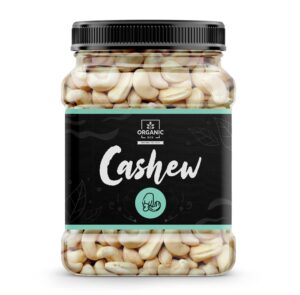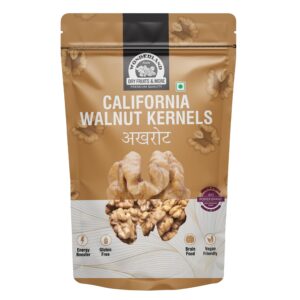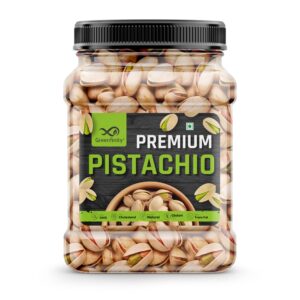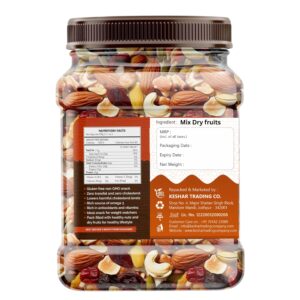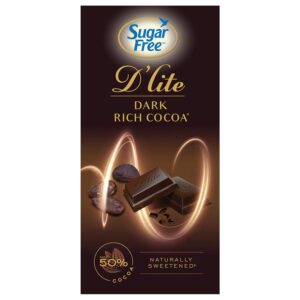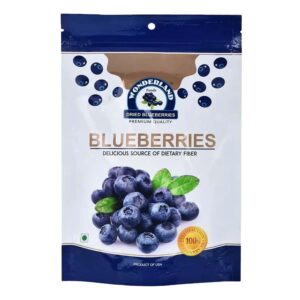In this post you will see the best brain foods in india.
1.Nuts & Dry Fruits

Nuts and dry fruits are fantastic brain foods packed with essential nutrients that can boost cognitive function, improve memory, and support overall brain health. Here’s a detailed breakdown of how different nuts and dry fruits contribute to brain health:
1. Walnuts
- Nutrients: Walnuts are a top brain-boosting nut, rich in omega-3 fatty acids, polyphenols, vitamin E, and antioxidants.
- Benefits: Omega-3s (specifically DHA) enhance cognitive functions and have been linked to slower age-related cognitive decline. Antioxidants help reduce oxidative stress, which protects brain cells from damage.
- Brain Impact: Regular consumption of walnuts can enhance memory, reduce the risk of neurodegenerative diseases, and improve concentration.
2. Almonds
- Nutrients: Almonds are loaded with vitamin E, magnesium, protein, and healthy fats.
- Benefits: Vitamin E has been associated with improved memory retention and is an antioxidant that protects against cognitive decline. Magnesium aids in the production of neurotransmitters and supports brain cell function.
- Brain Impact: Almonds help maintain memory and cognitive functions and may improve mood due to their magnesium content.
3. Hazelnuts
- Nutrients: Hazelnuts are rich in folate, magnesium, vitamin E, and healthy fats.
- Benefits: Folate (vitamin B9) is essential for cognitive function and helps prevent age-related memory decline. Vitamin E provides neuroprotective benefits and supports overall brain health.
- Brain Impact: Regularly eating hazelnuts can support cognitive abilities, enhance focus, and protect against cognitive deterioration.
4. Cashews
- Nutrients: Cashews provide magnesium, iron, and zinc, which are critical for brain health.
- Benefits: Zinc is essential for immune health, which indirectly supports brain function, while magnesium promotes relaxation, alleviating stress and anxiety.
- Brain Impact: Cashews can improve mental clarity, reduce stress, and aid in cognitive function and memory.
5. Pistachios
- Nutrients: Pistachios are a good source of vitamin B6, antioxidants, and unsaturated fats.
- Benefits: Vitamin B6 aids in the production of neurotransmitters, such as serotonin, which regulates mood, and dopamine, which is essential for memory and cognitive performance.
- Brain Impact: Pistachios support emotional stability, reduce anxiety, and enhance cognitive processing.
6. Brazil Nuts
- Nutrients: Brazil nuts are exceptionally high in selenium, a potent antioxidant.
- Benefits: Selenium is known to improve mood and reduce inflammation, which protects brain cells. It also prevents cognitive decline and maintains the structural integrity of neurons.
- Brain Impact: Just one Brazil nut per day provides ample selenium, supporting long-term brain health and mood stability.
7. Raisins
- Nutrients: Raisins contain iron, potassium, antioxidants, and natural sugars.
- Benefits: Iron improves oxygen flow to the brain, enhancing alertness and focus, while potassium helps regulate nerve functions.
- Brain Impact: Raisins support brain oxygenation and help prevent fatigue, promoting mental clarity and better concentration.
8. Dates
- Nutrients: Dates are high in natural sugars, fiber, antioxidants, and a variety of minerals, such as potassium and magnesium.
- Benefits: The natural sugars provide an instant energy boost for brain function, while antioxidants help reduce inflammation and oxidative stress.
- Brain Impact: Dates enhance memory retention and may reduce the risk of neurodegenerative diseases by supporting brain cell integrity.
9. Dried Berries (Blueberries, Goji Berries)
- Nutrients: Dried berries are rich in antioxidants, vitamin C, and anthocyanins.
- Benefits: Antioxidants in berries protect brain cells from damage, while anthocyanins enhance cognitive function by improving blood flow to the brain.
- Brain Impact: Regular consumption of dried berries supports memory, learning, and overall cognitive function, with potential benefits for brain aging.
10. Apricots
- Nutrients: Dried apricots are rich in potassium, vitamin A, and antioxidants.
- Benefits: Potassium helps in regulating nerve signals, which is essential for cognitive tasks. Antioxidants in apricots reduce inflammation and protect brain cells from free radicals.
- Brain Impact: Apricots help maintain nerve health and cognitive processing, supporting overall mental alertness and memory.
11. Figs
- Nutrients: Figs contain fiber, calcium, magnesium, and polyphenols.
- Benefits: Polyphenols act as antioxidants that protect the brain from inflammation and oxidative stress. Magnesium supports neurotransmitter functions and brain relaxation.
- Brain Impact: Figs help in memory retention, stress reduction, and mental relaxation, benefiting overall brain health.
How to Incorporate These Nuts and Dry Fruits
- Daily Serving: Consuming a small handful (about 1-2 oz) of mixed nuts and dry fruits is sufficient to provide the brain-boosting benefits without excess calories.
- Incorporation Tips: Add them to smoothies, sprinkle on oatmeal or yogurt, use as a topping on salads, or enjoy them as a snack.
Nuts and dry fruits make excellent snacks for supporting cognitive function and enhancing mental well-being. Regular consumption, combined with a balanced diet, can play a significant role in maintaining brain health and cognitive sharpness across all ages.
2.Dark Chocolate
Dark chocolate is an incredibly rich brain food, packed with antioxidants, minerals, and natural compounds that support cognitive function, mood enhancement, and overall brain health. Here’s a closer look at how dark chocolate benefits the brain:
1. Rich in Antioxidants
- Nutrients: Dark chocolate is loaded with antioxidants, particularly flavonoids, polyphenols, and catechins.
- Benefits: Antioxidants protect brain cells from oxidative stress caused by free radicals. Oxidative stress can lead to cellular damage and inflammation, contributing to brain aging and neurodegenerative conditions.
- Brain Impact: Regular consumption of dark chocolate helps reduce the impact of oxidative stress on brain cells, which supports long-term cognitive health and protects against age-related decline.
2. High in Flavonoids
- Nutrients: Dark chocolate, especially varieties with high cocoa content, contains flavonoids, a group of plant-based compounds.
- Benefits: Flavonoids have been shown to improve blood flow to the brain, which enhances oxygen and nutrient delivery to neurons. They also boost the formation of new neurons and connections between brain cells, known as neurogenesis and synaptogenesis.
- Brain Impact: Flavonoids support cognitive functions such as learning, memory, and focus. They may also slow age-related mental decline, enhancing mental clarity and overall brain vitality.
3. Mood-Boosting Compounds
- Nutrients: Dark chocolate contains mood-enhancing compounds like serotonin, phenylethylamine (PEA), and theobromine.
- Benefits: PEA acts as a natural antidepressant by stimulating the brain to release endorphins, or “feel-good” hormones. Serotonin helps to regulate mood, while theobromine provides a gentle energy boost without the jittery effects of caffeine.
- Brain Impact: The combination of these compounds can improve mood, alleviate stress, and boost mental clarity. Dark chocolate can be particularly beneficial for reducing symptoms of anxiety and promoting emotional well-being.
4. Contains Caffeine and Theobromine
- Nutrients: Dark chocolate has small amounts of caffeine and a higher content of theobromine.
- Benefits: Caffeine and theobromine are both natural stimulants that can improve alertness, focus, and energy levels. They stimulate the central nervous system and enhance blood flow to the brain.
- Brain Impact: These stimulants help improve short-term cognitive performance, boost concentration, and sharpen focus, making dark chocolate a great choice for a mental boost without overwhelming stimulation.
5. High in Magnesium
- Nutrients: Dark chocolate is one of the best natural sources of magnesium.
- Benefits: Magnesium is essential for brain health, as it helps regulate neurotransmitters and supports proper nerve function. It’s also associated with improved mood and reduced stress levels.
- Brain Impact: Magnesium in dark chocolate supports learning and memory functions and can help reduce symptoms of anxiety. This mineral plays a critical role in managing the body’s response to stress, making dark chocolate a comforting yet healthful treat.
6. Improves Blood Flow and Oxygenation to the Brain
- Nutrients: Dark chocolate’s flavonoids and nitric oxide boost improve blood flow.
- Benefits: Enhanced blood flow increases oxygen and nutrient delivery to the brain, supporting overall cognitive performance and reducing mental fatigue.
- Brain Impact: Increased blood flow can boost mental agility, support faster processing speeds, and aid in cognitive tasks. It may also protect against stroke and other blood flow-related issues in the brain.
7. Promotes Neuroplasticity and Memory
- Nutrients: The flavonoids in dark chocolate promote neuroplasticity, which is the brain’s ability to adapt, reorganize, and form new neural connections.
- Benefits: Neuroplasticity is crucial for learning, memory retention, and recovery from brain injuries. Dark chocolate enhances the hippocampus function, a part of the brain involved in memory and learning.
- Brain Impact: With regular consumption, dark chocolate can improve memory formation, boost learning capacity, and support cognitive resilience against stress and aging.
8. Anti-Inflammatory Effects
- Nutrients: Dark chocolate has anti-inflammatory properties due to its rich antioxidant and polyphenol content.
- Benefits: Chronic inflammation has been linked to cognitive decline, neurodegenerative diseases, and mental health disorders. The anti-inflammatory effects of dark chocolate can counteract these risks, protecting brain cells and supporting mental clarity.
- Brain Impact: By reducing inflammation, dark chocolate helps maintain mental agility, improves mood, and protects brain cells from premature aging.
9. How to Choose Brain-Boosting Dark Chocolate
- Cocoa Content: Choose dark chocolate with a cocoa content of at least 70% or higher, as this indicates a richer flavonoid concentration.
- Minimal Sugar: Opt for dark chocolate with minimal added sugars, as excess sugar can counteract its brain benefits.
- Avoid Additives: Look for varieties that are free from unnecessary additives, such as artificial flavors and preservatives.
10. Recommended Daily Amount
- Serving Size: To reap the brain-boosting benefits without overindulging, consume about 1-1.5 ounces (about 30-40 grams) of high-quality dark chocolate daily. A small amount provides the cognitive advantages without adding excess calories.
How to Incorporate Dark Chocolate
- Morning Boost: Add a small piece to your morning smoothie for an energy and mood lift.
- Snack or Dessert: Enjoy as a snack or after a meal to satisfy your sweet craving while benefiting brain health.
- With Nuts and Fruits: Pair dark chocolate with brain-friendly nuts or dried fruits for a powerful cognitive boost.
Dark chocolate is a delicious, satisfying food that supports brain health by improving blood flow, boosting mood, enhancing memory, and protecting brain cells from damage. Just a small portion each day can provide long-term benefits for cognitive function and mental well-being.
3.Coffee & Green Tea
Coffee as Brain Food
High in Caffeine
- Nutrients: Coffee is one of the richest sources of caffeine, which is a central nervous system stimulant.
- Benefits: Caffeine blocks adenosine, a neurotransmitter that promotes relaxation, keeping the brain alert. It also stimulates the release of dopamine and norepinephrine, which improve mood, focus, and energy.
- Brain Impact: Caffeine in coffee enhances alertness, improves reaction time, and boosts overall mental performance. Regular, moderate consumption is linked to a reduced risk of cognitive decline and conditions like Alzheimer’s and Parkinson’s disease.
Rich in Antioxidants
- Nutrients: Coffee is packed with antioxidants, such as chlorogenic acid, polyphenols, and hydrocinnamic acids.
- Benefits: These antioxidants reduce inflammation and protect brain cells from oxidative stress, which can lead to neurodegeneration over time.
- Brain Impact: The antioxidants in coffee help protect against age-related cognitive decline, supporting memory, mental clarity, and overall brain function.
Supports Neurotransmitter Production
- Nutrients: Coffee enhances the release of dopamine, serotonin, and noradrenaline.
- Benefits: Dopamine and serotonin help improve mood and support cognitive functions, while noradrenaline increases alertness and focus.
- Brain Impact: Coffee consumption can elevate mood, alleviate stress, and improve memory. Dopamine, in particular, plays a key role in motivation and concentration, making coffee a great choice for tackling mentally demanding tasks.
Boosts Neuroplasticity
- Nutrients: Coffee stimulates brain-derived neurotrophic factor (BDNF).
- Benefits: BDNF supports the growth of new neurons and connections, which are essential for learning, memory formation, and adaptability.
- Brain Impact: By boosting neuroplasticity, coffee supports learning and helps maintain cognitive agility as we age.
Potential Neuroprotective Effects
- Nutrients: Coffee’s bioactive compounds, including caffeine and polyphenols, may protect brain cells.
- Benefits: Studies suggest regular coffee drinkers have a lower risk of neurodegenerative diseases, such as Alzheimer’s and Parkinson’s, possibly due to the anti-inflammatory effects and the protection caffeine offers against amyloid plaques.
- Brain Impact: Coffee’s protective qualities support long-term cognitive health and help prevent cognitive decline associated with aging.
Recommended Coffee Intake
- Serving Size: Most research suggests that 1-3 cups of coffee per day is optimal for brain health benefits without overstimulation. Going beyond that may lead to anxiety or disrupt sleep, which can negatively affect cognitive health.
- Types of Coffee: For the best results, opt for black coffee with minimal sugar and no artificial creamers. Specialty coffees such as cold brew or espresso are also excellent choices when kept simple.
Green Tea as Brain Food
Contains Caffeine for Alertness
- Nutrients: Green tea contains a moderate amount of caffeine, usually about half the amount in coffee.
- Benefits: This moderate caffeine level provides a gentle mental boost, improving alertness and focus without the jittery side effects often associated with coffee.
- Brain Impact: Green tea offers sustained mental clarity and focus, making it ideal for tasks that require prolonged attention and concentration.
High in L-Theanine for Relaxation
- Nutrients: Green tea contains L-theanine, an amino acid that promotes relaxation without causing drowsiness.
- Benefits: L-theanine increases alpha brain waves, which are associated with a state of relaxed alertness. When combined with caffeine, it produces a unique effect that promotes calm focus and helps reduce anxiety.
- Brain Impact: The combination of L-theanine and caffeine in green tea can improve attention, enhance mood, and reduce mental fatigue, making it a perfect beverage for calm, steady focus.
Loaded with Antioxidants
- Nutrients: Green tea is high in catechins, particularly epigallocatechin gallate (EGCG).
- Benefits: EGCG is a potent antioxidant that helps reduce oxidative damage in the brain and protects neurons from inflammation. Antioxidants in green tea also contribute to neurogenesis, the formation of new brain cells.
- Brain Impact: Regular green tea consumption helps protect brain cells from damage, reduces the risk of neurodegenerative diseases, and supports long-term memory and brain health.
Improves Brain Function and Memory
- Nutrients: The combined effects of caffeine, L-theanine, and catechins support various aspects of cognitive function.
- Benefits: Studies show that green tea can improve cognitive performance, especially working memory, processing speed, and executive function.
- Brain Impact: Green tea helps enhance mental sharpness and processing speed, with effects that support memory retention and information recall, making it an ideal drink for tasks requiring memory engagement.
Anti-Inflammatory and Neuroprotective Properties
- Nutrients: The polyphenols in green tea reduce inflammation and promote blood flow to the brain.
- Benefits: Increased blood flow ensures better oxygen delivery to brain cells, which improves cognitive performance. The anti-inflammatory effects of green tea can help reduce the risk of neurodegenerative diseases, such as Alzheimer’s and Parkinson’s.
- Brain Impact: Green tea’s anti-inflammatory properties promote healthy brain aging and reduce cognitive decline, supporting long-term mental wellness.
Reduces Stress and Enhances Mood
- Nutrients: L-theanine, caffeine, and catechins work together to improve mood.
- Benefits: The calming effect of L-theanine counteracts the stress of caffeine, resulting in improved mood stability and lower stress levels.
- Brain Impact: Green tea is excellent for emotional well-being, reducing stress and promoting a balanced, positive mental state. This calming effect also makes it useful for managing anxiety and enhancing overall mental wellness.
Recommended Green Tea Intake
- Serving Size: Drinking 2-3 cups of green tea per day is considered optimal for its brain-boosting effects. Higher amounts may reduce the benefits of L-theanine and could lead to caffeine-related side effects.
- Preparation Tips: Use loose-leaf green tea or high-quality tea bags to ensure maximum catechin content. Avoid boiling water when preparing green tea, as excessively hot water can reduce catechin potency; instead, use water just under boiling (around 80°C or 176°F).
4.Blueberries
Key Components and Benefits of Blueberries
Rich in Antioxidants
- Nutrients: Blueberries contain high levels of antioxidants, particularly flavonoids like anthocyanins, quercetin, and catechins.
- Benefits: These antioxidants protect brain cells from oxidative stress, which can damage cells and lead to age-related decline.
- Brain Impact: The antioxidants in blueberries help protect neurons from free radical damage, reducing the risk of neurodegenerative diseases such as Alzheimer’s and Parkinson’s. This protection also slows the brain’s natural aging process, keeping cognitive functions sharp for longer.
Improves Memory and Learning
- Nutrients: Anthocyanins, the pigments giving blueberries their deep color, play a major role in memory enhancement.
- Benefits: Anthocyanins have been shown to increase blood flow to the brain and improve signaling in brain pathways that regulate memory and cognition.
- Brain Impact: Studies suggest that regular blueberry consumption can improve both short-term memory and spatial memory, which are critical for navigation and problem-solving. For students or those engaging in mentally demanding tasks, blueberries can be an effective food to boost learning and memory retention.
Reduces Brain Inflammation
- Nutrients: Blueberries are rich in anti-inflammatory compounds like vitamin C and flavonoids.
- Benefits: Inflammation in the brain is a known contributor to cognitive decline and mood disorders. The anti-inflammatory properties of blueberries can help reduce this inflammation.
- Brain Impact: By reducing brain inflammation, blueberries support mental clarity and reduce the risk of developing mood disorders such as depression and anxiety. This also supports long-term brain health, as chronic inflammation is linked to neurodegenerative conditions.
Enhances Communication Between Brain Cells
- Nutrients: The flavonoids in blueberries are known to improve intercellular communication.
- Benefits: Improved cellular communication strengthens the brain’s neural network, allowing for quicker information processing and recall.
- Brain Impact: Blueberries help enhance mental agility, allowing for better focus, faster information processing, and improved reaction times. This makes blueberries beneficial for tasks requiring quick thinking and decision-making.
Supports Neuroplasticity and Neurogenesis
- Nutrients: Blueberries contain polyphenols that stimulate brain-derived neurotrophic factor (BDNF), a protein that supports neuroplasticity and neurogenesis (the growth of new neurons).
- Benefits: BDNF helps the brain adapt to new information and recover from injury. It also plays a role in long-term memory.
- Brain Impact: By promoting BDNF production, blueberries support the brain’s ability to learn new information, adapt to challenges, and preserve memory. This is especially beneficial for aging adults, as neuroplasticity tends to decline over time.
Improves Mood and Reduces Stress
- Nutrients: Blueberries are a source of vitamins C and K, manganese, and fiber, all of which contribute to overall brain health and mood regulation.
- Benefits: The antioxidants in blueberries combat oxidative stress, which can influence mood and anxiety levels.
- Brain Impact: Blueberries have been linked to improved mood and a reduction in symptoms of depression and anxiety. The stress-relieving properties of blueberries make them a great option for people looking to maintain emotional balance and enhance resilience against stress.
Boosts Brain Function Under Stress
- Nutrients: The antioxidant content helps prevent the release of cortisol, the stress hormone.
- Benefits: During times of stress, cortisol can disrupt memory and concentration, but blueberries help regulate cortisol levels.
- Brain Impact: Consuming blueberries before a stressful event, such as an exam or public speaking, can improve focus and reduce mental fatigue, making it easier to perform well under pressure.
How to Incorporate Blueberries into Your Diet
- Serving Size: A single serving of blueberries (about 1 cup or 150 grams) daily is sufficient to provide brain-boosting benefits.
- Fresh or Frozen: Both fresh and frozen blueberries retain their nutrients, so choose what is most convenient.
- Ideas for Consumption:
- Smoothies: Blend blueberries with spinach, bananas, and yogurt for a nutritious smoothie.
- Oatmeal or Yogurt Topping: Add blueberries to oatmeal, yogurt, or cereals for a morning boost.
- Snacks: Enjoy them alone as a snack or freeze them for a refreshing treat.
5.Fruits

1. Avocados
- Nutrients: Avocados are rich in healthy monounsaturated fats, vitamin K, folate, and lutein.
- Benefits: Monounsaturated fats in avocados promote healthy blood flow, ensuring that brain cells get a steady supply of oxygen and nutrients. Vitamin K and folate reduce the risk of cognitive decline.
- Brain Impact: Healthy fats help improve brain structure and communication between neurons, while folate aids in DNA repair within cells. Avocados are known to enhance focus, improve problem-solving skills, and boost memory retention, making them great for brain health.
2. Oranges
- Nutrients: Oranges are an excellent source of vitamin C, flavonoids, and folate.
- Benefits: Vitamin C is a potent antioxidant that combats oxidative stress and prevents neurodegenerative diseases. The flavonoids and folate in oranges also improve cognitive functions by enhancing brain cell communication.
- Brain Impact: Vitamin C protects brain cells from free radical damage and enhances collagen production for blood vessels, improving circulation and oxygen flow to the brain. Regular intake of vitamin C from oranges is associated with a reduced risk of age-related cognitive decline.
3. Bananas
- Nutrients: Bananas are high in potassium, vitamin B6, magnesium, and natural sugars.
- Benefits: Vitamin B6 is essential for neurotransmitter synthesis, such as serotonin and dopamine, which regulate mood and concentration. The natural sugars provide an energy boost without causing blood sugar spikes.
- Brain Impact: Bananas help improve mood, enhance memory, and boost mental clarity. The steady release of glucose into the bloodstream provides sustained energy, supporting focus and concentration.
4. Strawberries
- Nutrients: Strawberries are rich in vitamin C, manganese, fiber, and anthocyanins.
- Benefits: Anthocyanins in strawberries reduce oxidative stress and inflammation in the brain. Vitamin C boosts the immune system and helps repair brain cells.
- Brain Impact: Strawberries enhance memory and motor skills by improving neuronal communication and protecting brain cells from damage. Regular consumption of strawberries is associated with a slower rate of cognitive decline, particularly in older adults.
5. Pomegranates
- Nutrients: Pomegranates are packed with polyphenols, antioxidants, vitamin C, and folate.
- Benefits: The polyphenols in pomegranates have neuroprotective effects that prevent brain inflammation and support memory and cognition.
- Brain Impact: Drinking pomegranate juice or consuming the fruit can help reduce the accumulation of amyloid plaques, which are linked to Alzheimer’s disease. Pomegranates enhance brain function by supporting blood flow, protecting neurons, and potentially preventing age-related cognitive issues.
6. Grapes
- Nutrients: Grapes contain resveratrol, quercetin, and vitamins C and K.
- Benefits: Resveratrol, a powerful antioxidant in grapes, has been shown to reduce brain inflammation, protect blood vessels, and improve blood flow to the brain. Quercetin supports brain health by reducing oxidative stress and enhancing neurogenesis.
- Brain Impact: Grapes can help maintain cognitive sharpness and memory over time. Resveratrol also supports hippocampal function, which is crucial for memory formation and spatial orientation.
7. Apples
- Nutrients: Apples are high in quercetin, vitamin C, and fiber.
- Benefits: Quercetin in apples has been shown to protect brain cells from degeneration and lower inflammation. Vitamin C provides antioxidant protection, while fiber stabilizes blood sugar, giving the brain a steady energy supply.
- Brain Impact: Apples help protect memory and improve learning abilities. The combination of antioxidants and fiber in apples makes them a great choice for sustained cognitive function, especially during aging.
8. Cherries
- Nutrients: Cherries are packed with anthocyanins, melatonin, and vitamin C.
- Benefits: The anthocyanins in cherries have anti-inflammatory properties, reducing oxidative stress on brain cells. Melatonin supports sleep, which is crucial for memory consolidation and cognitive function.
- Brain Impact: Cherries can enhance sleep quality, support brain recovery, and boost mental sharpness. Good sleep is essential for memory and cognitive health, making cherries an ideal nighttime snack to support brain function.
9. Blackberries
- Nutrients: Blackberries contain polyphenols, vitamins C and K, and manganese.
- Benefits: Polyphenols in blackberries enhance communication between brain cells and reduce inflammation. Vitamin C provides antioxidant protection, and manganese is essential for energy production and brain cell function.
- Brain Impact: Blackberries have been shown to improve both motor and cognitive skills by enhancing memory and learning. They also protect the brain from age-related decline, supporting long-term cognitive health.
10. Kiwis
- Nutrients: Kiwis are high in vitamin C, vitamin E, folate, and fiber.
- Benefits: The combination of vitamins C and E in kiwis provides a double antioxidant effect, helping to prevent brain cell damage. Folate supports DNA repair in neurons, while fiber stabilizes blood sugar levels.
- Brain Impact: Kiwis enhance cognitive function, support brain cell repair, and reduce fatigue. This fruit is particularly beneficial for people who need sustained mental focus throughout the day.
11. Plums
- Nutrients: Plums are a rich source of antioxidants, vitamin C, and fiber.
- Benefits: The antioxidants in plums, especially phenolic compounds, help prevent neurodegenerative conditions by reducing oxidative stress.
- Brain Impact: Plums help improve cognitive flexibility, reaction time, and mental clarity. They can be beneficial for people experiencing stress or brain fog by supporting neuron health and reducing brain fatigue.

Disclaimer –
We present the products to you after doing research, but still it is possible that your experience with those products may not be good.
We can hope that your experience goes well, but we can’t make promises.
Note –
Many times there are many versions of the same product, companies do this to meet the different needs of the customers. If you go to see it yourself, you may get confused, so if you want to see our recommended product, then click on its photo.
For extra info. Contact Us
Almost every time it happens that the same thing is available at different prices on different websites and marketplaces, some products are available at a good price at one place but then it cannot be trusted whether they are genuine or fraud.
If you do not want to get into such trouble and want to buy good products at the right price, then Contact Us.
If you want to buy any of these then click on them.


